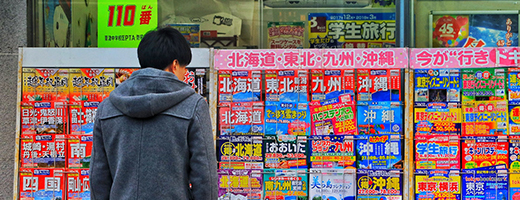Articles

New Governors Nominated
Kishida administration proposed Kazuo Ueda as the new BOJ governor. Ryozo Himino, former Commissioner of Japanese Financial Services Agency, and Shinichi Uchida, Executive Director of BOJ, were also nominated as Deputy Governors. The nominees are scheduled to be interviewed at the Diet in the coming weeks to obtain the consent of both Houses of the Diet before being formally appointed.
Ueda’s nomination was a surprise to most market participants, as Deputy Governor Masayoshi Amamiya was reported to have been approached by the government for the next Governor’s post and he was viewed as the top candidate by the market. Amamiya is said to have declined the offer for various reasons.
Expected Policy of New Governor Ueda and the Team
Judging from his Nikkei July 2022 and other articles, he has a cautious view on Japanese economy and price movements, stating that “We should keep in mind that we still have a long way to go to achieve sustained 2% inflation in Japan”. Ueda also said on February 10th that current monetary policy is appropriate and easing needs to continue for the time being.
At the same time, he recognizes the side effects of the super-easy policy and need for goal changes and exit strategies, saying that "The future of the extraordinary monetary easing framework, which has lasted longer than many expected, will require serious consideration somewhere". Ueda will act based on fundamentals, as he says "it is important to make logical decisions and easily understood explanations".
“The BOJ is expected to continue easy monetary policy for some time…”
Implications to the Market
Although the nomination of Ueda was a surprise when reported, especially as PM Kishida would have preferred to make some changes to still alive Abenomics policy, he appears to have compromised on a more market friendly decision that takes the continuity of policy into consideration; based on Ueda's latest discourse and the expected new Deputy Governors who will flank him, the BOJ is expected to continue easy monetary policy for some time and explore the direction of policy revisions in light of economic and price trends.
We continue to expect a tweak or removal of YCC in mid-2023, while keeping the short-term rate low and revising the accord between the BOJ and the government by changing the “short-term” 2% inflation target to a longer-horizon one. If monetary policy is to be decided with an emphasis on the economy and prices, as Ueda says, it is unlikely that the BOJ will rush to revise its policy when the economy, prices and financial conditions are facing headwinds, as are the cases now. YCC change, if any, will be another 50bp or a larger one as gradual tweak is not a good way to control long- term rates as Ueda thinks, quoting the examples of FRB in 1950s and Australian central bank in 2021.
It appears that equity, fixed income and currency markets have reacted positively to the news so far, and investors are expected to maintain a wait and see stance until the new Governor chairs its first BOJ’s policy meeting in April, assuming that no major actions are taken during Governor Kuroda’s final BOJ policy meeting in March. First, let us see what they have to say during the nominees’ Diet speech scheduled in the coming weeks.
Disclaimer
The information contained in this document is intended solely for the purposes of information only and is not intended as an offer or solicitation by anyone in any jurisdiction in which such an offer or solicitation is not authorized or to any person to whom it is unlawful to make such an offer or solicitation. This report has not been reviewed by the Monetary Authority of Singapore.

